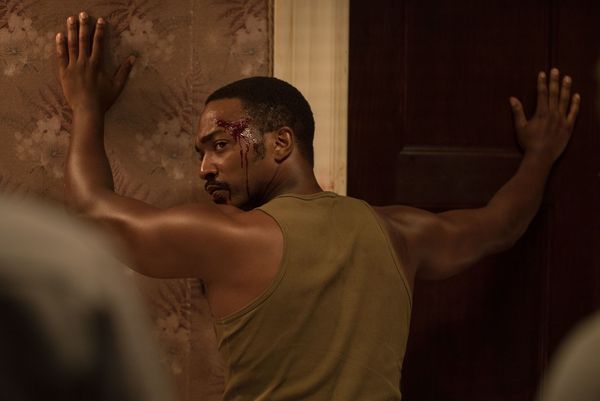Eye For Film >> Movies >> Detroit (2017) Film Review
Detroit
Reviewed by: Angus Wolfe Murray

Even today, as President Trump wades through the under filth of white trashed prejudice like a day at the beach, it is difficult to remember how things were in the late Sixties. The riots in Watts resulted in 34 deaths and 1000 injured. Huey Newton, co-founder of the Black Panthers, suffered critical injuries while handcuffed to a gurney in police custody. Hoover's FBI had been given carte blanche to put down this budding revolution using any means at their disposal. The nation was angry and afraid and its natural racist fury let rip.
In the early hours of Sunday, July 23, 1967, the police raided a late night drinking club in Detroit. Soon a crowd formed in the street outside, threatening and loud. Stones were thrown, followed by looting. Caught in the aftershock as members of Michigan's National Guard trucked in and a curfew was imposed people fled to what they hoped would be safety. This is the story of where it went wrong.

Kathryn Bigelow is an artist. She was married to James (Titanic) Cameron. Her first outing as a film director was the modern vampire flick Near Dark, followed by a fast paced thriller Blue Steel with Jamie Lee Curtis and then Point Break with Patrick Swayze and Keanu Reeves. After she won an Oscar for The Hurt Locker, she made the Osama bin Laden assassination epic Zero Dark Thirty. The lady likes action and she's good at it. In a man's world, she rocks plenty.
Covering a riot is like covering a war, only shorter. You make choices. You take a moment and use it as a metaphor. And when that moment is based on real events you try to be true although often no one knows for sure, in which case you improvise.
With the help of screenwriter Mark Boal, who worked with her on the previous two films, Bigalow uses a documentary style that forces the audience to stay focused. In the frenzy of the night she stays close to Krauss (Will Poulter), a young white cop who, from an insecure base, exposes his fear and distrust of black people.
The episode in question, which becomes an atrocity that evolves out of panic, takes place in the Algiers Motel off the main drag. Krauss and his crew believe there is a sniper in the building and proceed to terrorise and torture the occupants to expose the culprit.
The film is orchestrated at perfect pitch. Krauss' racist rage is ingrained and not the actions of a psycho sadist. Other white men show compassion, or at least some do, and other black men, especially Dismukes (John Boyega), a security guard, understand the dangers of confrontation like it's part of their DNA as if there is no other response in these Disunited States of America.
Bigelow is tough. She doesn't compromise on violence. She has no time for sentimentality. She knows what she feels and she feels the heart of the city bleed out. She doesn't preach. She is like Dismukes. She observes.
Poulter and Boyega are from London which proves that good acting is universal. They have an empathy and a depth that are as unexpected as they are exceptional.
Reviewed on: 21 Aug 2017

















